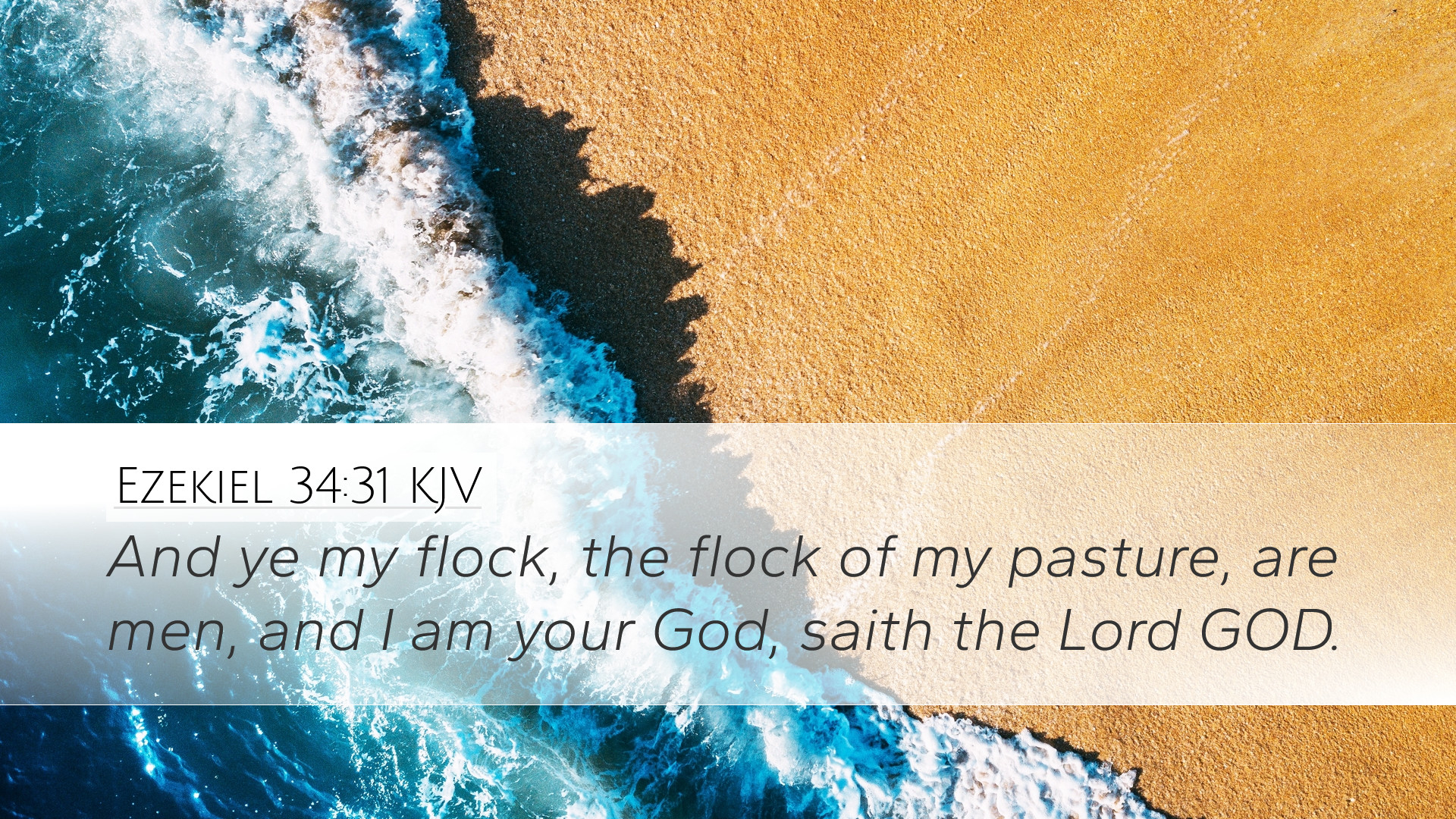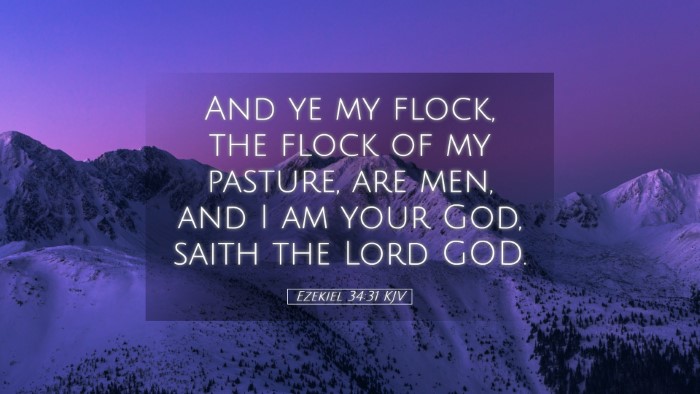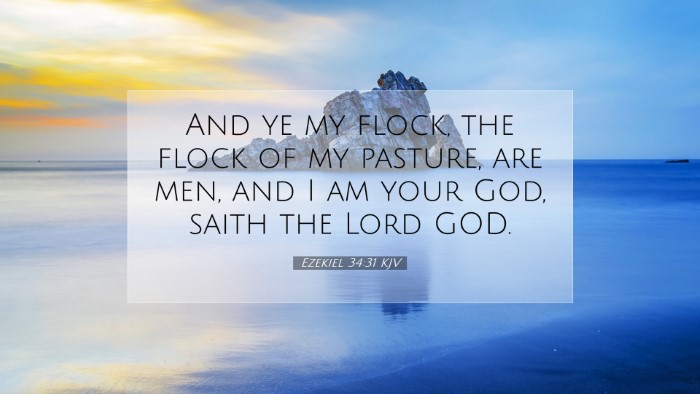Ezekiel 34:31 Commentaries Overview
Bible Verse: "And ye my flock, the flock of my pasture, are men, and I am your God, saith the Lord GOD." (Ezekiel 34:31)
Introduction
The book of Ezekiel is a narrative of the prophet's experiences and revelations during the Babylonian exile. Chapter 34 speaks profoundly about God's relationship with His people, particularly in terms of leadership and care. In verse 31, God emphasizes His sovereignty and intimate connection to His people as their caretaker.
Contextual Background
Ezekiel's role as a prophet was to communicate God's message of judgment and hope to Israel. The metaphor of the flock illustrates God’s people as sheep, highlighting both their vulnerability and the divine responsibility of shepherding. This verse concludes a discourse on the failures of earthly shepherds and God's promise to fulfill the role of the Good Shepherd.
Commentary Insights
Matthew Henry's Commentary
Matthew Henry, a notable exegete, emphasizes that God's declaration of His people as "my flock" indicates a deep personal relationship. He notes that the term “flock of my pasture” suggests that God Himself provides sustenance and care for His people, similar to how a shepherd leads and feeds sheep in verdant pastures. The phrase “are men” serves to affirm their humanity and inherent value in God’s eyes, standing in contrast to the corrupt leaders previously mentioned.
Albert Barnes' Commentary
Albert Barnes offers a perspective that highlights the assurance and identity of God's people through the term “ye my flock.” He clarifies that this verse assures believers of their status as God's chosen, contrary to the false shepherds. In seeking to identify “men” as the flock, Barnes reflects on the duality of humanity's frailty and the divine attention it receives from God. This assurance implies God's commitment to care, protect, and ultimately redeem His people. He further underscores the statement “I am your God,” as a declaration of covenant relationship, where God reassures the faithful of His faithful guidance and protection.
Adam Clarke's Commentary
Adam Clarke, known for his analytical approach, discusses the implications of God labeling His followers as sheep within His pasture. He reflects on the existential condition of humanity—our need for guidance and divine oversight. Clarke posits that the identity of “my flock” invokes a sense of belonging, suggesting that God is the ultimate caretaker, focusing on mercy and grace. He also notes the significance of leadership and faithfulness, urging spiritual leaders to recognize their role as under-shepherds tasked with reflecting God’s care for His people.
Theological Implications
This verse carries significant theological weight, as it speaks directly to God’s relationship with His people. It reiterates themes of identity, stewardship, and divine providence. The acknowledgment of humans as “men” rather than mere sheep emphasizes the honor and dignity bestowed upon humanity within the divine order. God's role as the shepherd not only provides comfort but also calls for accountability among those who lead.
Practical Applications
- For Pastors: This verse serves as a reminder of the high calling of pastoral ministry, emphasizing a commitment to shepherding with integrity and care.
- For Theologians: The text invites deeper exploration of the covenant relationship between God and humanity, particularly in the context of leadership dynamics.
- For Students: It offers a fundamental understanding of God’s character as a protector and provider, encouraging reflection on the implications of divine care in their spiritual journey.
- For Bible Scholars: The verse provides a rich ground for examining the themes of leadership, pastoral care, and the nature of God's covenants with His people.
Conclusion
In summary, Ezekiel 34:31 encapsulates a profound truth about God’s relationship with His people. The insights from Matthew Henry, Albert Barnes, and Adam Clarke reinforce the themes of protection, identity, and the responsibilities of leadership within the community of faith. As we reflect on this verse, may we understand more deeply our call to be faithful stewards under the ultimate shepherd, who is the Lord God.


